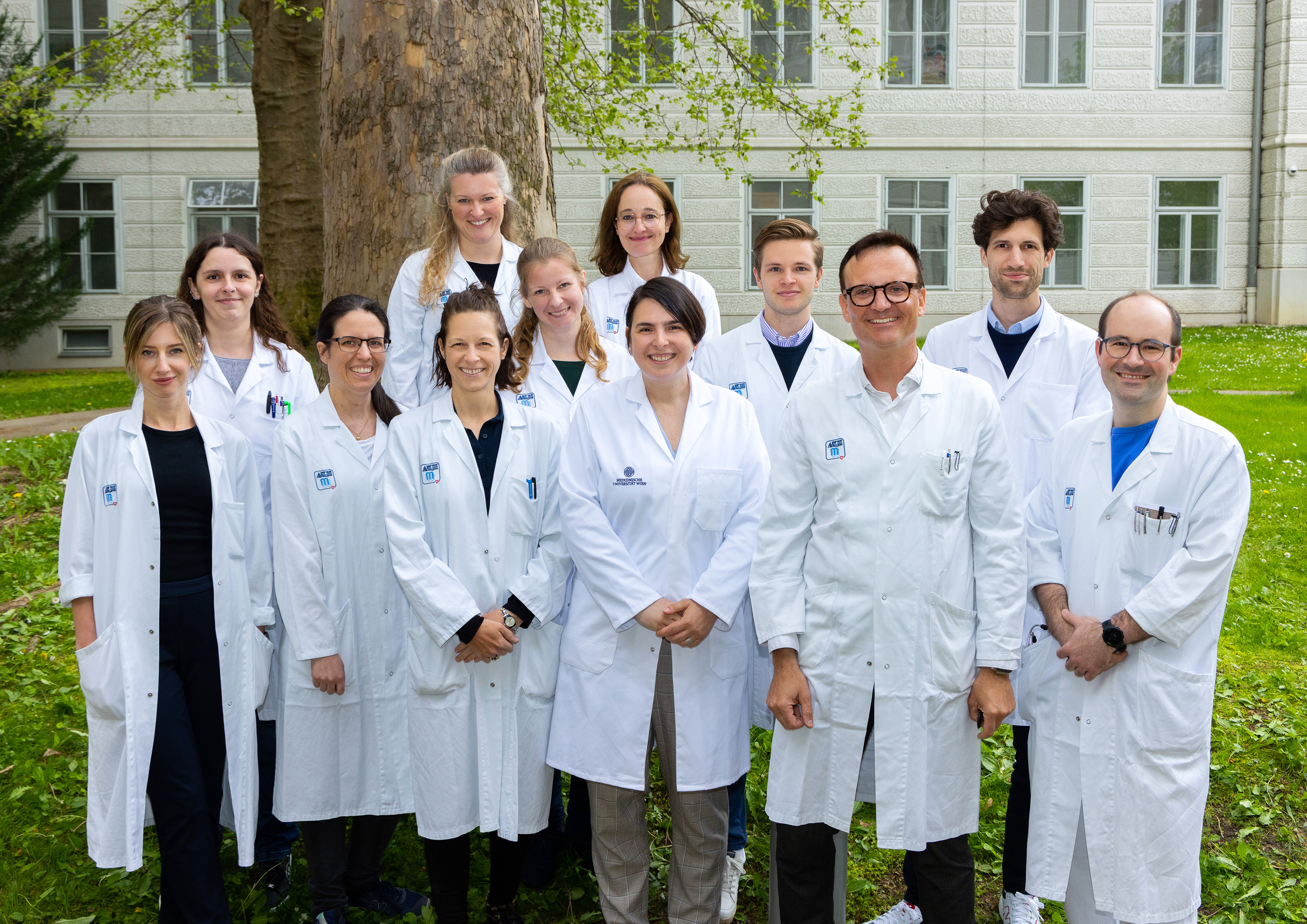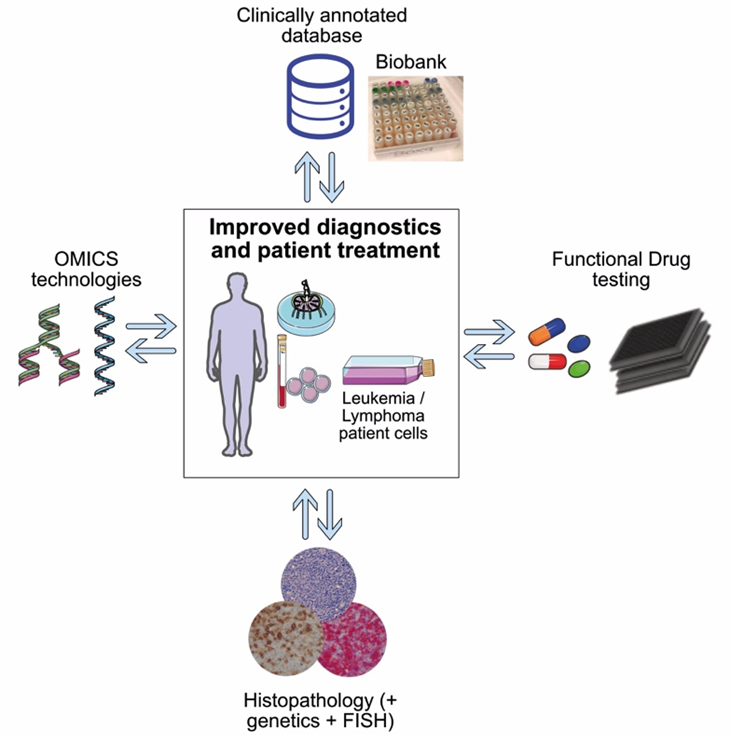
Finding functional switches in hematological malignancies
Our lab undertakes basic, translation and clinical research to advance and develop novel diagnostics and treatment modalities for patients with hematological malignancies. More specifically, we study leukemias and lymphomas with particular high medical need for better therapies such as T-PLL (T-cell-prolymphocytic leukemia), and PTCL (peripheral T-cell lymphoma). Moreover, the group has been instrumental in setting up a viable biobank (Vivi-bank) at the Medical University of Vienna, which currently contains a unique set of over 1000 fully annotated viable lymphoma samples for research use.
The laboratory is composed of various research profiles, including physician scientists, which drives our multi-disciplinary approach. The basic research of the group focuses on key transcription factors of the blood system and their role in cellular differentiation, regulation of gene expression, and cancer formation. We particularly aim to understand how oncoproteins hijack physiologic programs to impact transcription factors so that they evoke hematologic cancers. Consequently, the central theme of our research is to push precision cancer medicine from a genetic centered view to a functional level where we test the feasibility and efficacy of integrating ex vivo drug screening in clinical decision making. We are especially interested in the rational design of drug combinations to break therapy resistance and generating concepts on future trial design in the age of personalized precision medicine.
To deliver on the promise of personalized medicine, it is imperative to integrate molecular, functional and clinical information. This will facilitate hypothesis generation for therapy advancements to be evaluated in next generation clinical trial concepts bringing tailored treatment strategies for functionally defined patient subsets.

